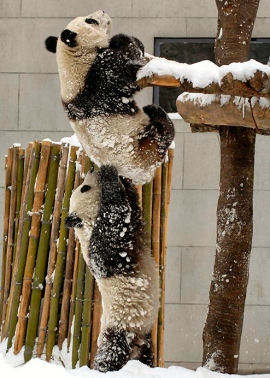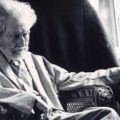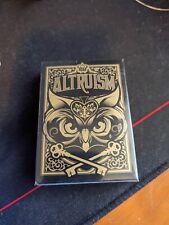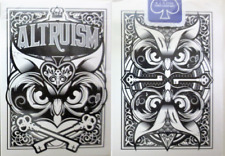
Demonstrations of altruism and selfless behavior in the animal kingdom have long puzzled evolutionary biologists. Why do some individuals sacrifice their own self-interest to help others? Emily DuVal, a UC Berkeley zoologist, believes that in the case of the tropical bird known as the lance-tailed manakin, it’s because there may be a long-term payoff.
During courtship displays, instead of fighting over females, pairs of male manakins team up to court prospective mates together. The two males perform a double act dance for interested females, using complex, synchronized moves and flight displays to impress the opposite sex. But when the courting dance is finished, the faux-threesome is over, and only the dominant alpha male gets the chance to mate.
DuVal was intrigued as to why the subordinate beta males should cooperate in this courting behavior when there doesn’t appear to anything in it for them. To investigate, she color-banded and observed wild lance-tailed manakins in Panamá over several years to follow changes in their status. She also used genetic analyses to determine chicks’ paternity and their genetic relationship to the adults.
DuVal’s results contrast with those from studies of other birds with cooperative courtship behaviors: wild turkeys strut cooperatively with close relatives, and ruffs (a shorebird) form alliances of males that often both mate while they are partners. “These contrasts are interesting because they show that similar behavior can result from very different social and selective environments,” she concluded.
Related articles:
Cuckoo Cuckoldry
Testosterone A Mixed Blessing For Songbirds
When A Spotty Face Indicates A Healthy Partner


















Comments are closed.